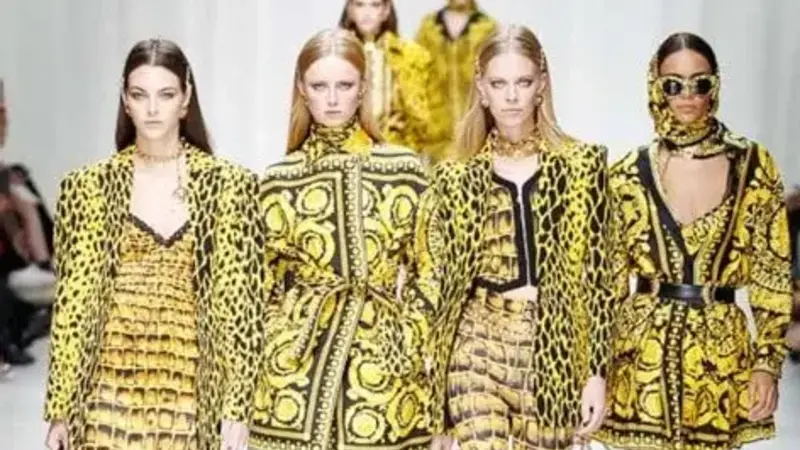The world of fashion is not just about clothing; it is a symbol of status, craftsmanship, and lifestyle. The most expensive clothing brands represent the pinnacle of luxury, combining high-quality materials, artisanal craftsmanship, and exclusivity. Moreover, these brands are more than just apparel—they are statements of elegance, taste, and sophistication.
For fashion enthusiasts and collectors alike, understanding which brands command the highest prices, and why, can help guide purchases and investments. In this article, we explore the most expensive clothing brands, their unique qualities, and what makes them so desirable in the global fashion industry.
What Makes a Brand One of the Most Expensive Clothing Brands?
Several factors contribute to a brand being recognized among the most expensive clothing brands:
-
Premium Materials: Use of silk, cashmere, fine leather, and rare fabrics significantly increases cost.
-
Handcrafted Excellence: Many luxury items are partially or fully handcrafted, reflecting unmatched skill and attention to detail.
-
Heritage and Reputation: Established history and a legacy of excellence elevate brand value.
-
Exclusivity: Limited edition collections or bespoke services enhance desirability.
-
Cultural Influence: Celebrity endorsements, media coverage, and fashion shows contribute to the brand’s perceived value.
Consequently, high pricing in fashion is not only about material costs but also about artistry, scarcity, and prestige.
Top Luxury Labels: The Most Expensive Clothing Brands
Here is a closer look at some of the most expensive clothing brand renowned worldwide:
1. Gucci
Founded in 1921, Gucci is synonymous with Italian luxury. The brand is famous for iconic handbags, shoes, jackets, and ready-to-wear collections. Moreover, Gucci balances traditional craftsmanship with bold, contemporary designs. As a result, its products are highly coveted by collectors and fashion enthusiasts alike.
2. Louis Vuitton
Louis Vuitton, part of LVMH, epitomizes elegance and prestige. Famous for its signature monogram leather goods, luggage, and fashion collections, LV items are crafted with meticulous care. In addition, the brand’s limited edition releases enhance exclusivity, making it one of the most expensive clothing brands globally.
3. Chanel
Chanel represents timeless sophistication. Coco Chanel revolutionized fashion with designs such as the little black dress and tweed jackets. Furthermore, Chanel’s haute couture garments involve hundreds of hours of meticulous handwork. Consequently, Chanel maintains its place among the top luxury fashion brands worldwide.
4. Prada
Prada is celebrated for blending innovation with traditional Italian craftsmanship. Its unique designs, limited edition collections, and runway presence make it one of the most expensive clothing brands admired internationally. Moreover, Prada continues to set trends while maintaining its classic elegance.
5. Hermes
Hermes is legendary, especially for leather goods like the Birkin bag. Every item is handcrafted with precision, sometimes taking dozens of hours to complete. As a result, Hermes products are not just luxury items but also valuable investments. Additionally, its scarves, shoes, and ready-to-wear collections reinforce its high-end status.
Why the Most Expensive Clothing Brands Command High Prices
Luxury fashion pricing is influenced by multiple factors:
-
Labor-Intensive Craftsmanship: Hand-sewn garments and intricate detailing elevate value.
-
Scarcity: Limited editions and bespoke offerings create exclusivity.
-
Innovation: Continuous research into new materials and designs increases costs.
-
Marketing & Branding: Runway shows, celebrity endorsements, and high-profile campaigns enhance perceived value.
-
Customization: Made-to-order and personalized services justify premium prices.
Therefore, owning pieces from these brands is not just a fashion choice but a statement of prestige and sophistication.
The Art of Craftsmanship in Most Expensive Clothing Brands
Artisans play a central role in establishing a brand’s reputation among the most expensive clothing brands.
For example:
-
Chanel haute couture dresses involve hundreds of hours of detailed handwork.
-
Hermes leather goods are individually hand-stitched and carefully inspected.
Consequently, this unparalleled craftsmanship ensures longevity, uniqueness, and a higher price point.
Cultural Influence and Status Symbol
Luxury fashion is closely tied to culture and social status. Celebrities, influencers, and fashion editors help elevate these brands to iconic status. Moreover, owning clothing from the most expensive clothing brands signifies wealth, taste, and social prestige. As a result, these brands remain aspirational worldwide.
Investment Value of the Most Expensive Clothing Brands
Expensive clothing often appreciates over time. For instance:
-
Hermes Birkin bags frequently resell at higher prices than retail.
-
Limited edition Gucci, Louis Vuitton, and Chanel pieces become collectible investments.
Consequently, luxury fashion serves both as an aesthetic and financial investment for enthusiasts.
Tips for Buying Authentic Luxury Clothing
-
Purchase from authorized retailers or official boutiques.
-
Check craftsmanship, including stitching, logos, and material quality.
-
Look for authenticity certificates or serial numbers.
-
Avoid suspiciously low prices, which often indicate counterfeits.
These measures help ensure your investment in the most expensive clothing brands is secure.
Pros and Cons of Investing in Luxury Fashion
Pros:
-
High-quality materials and durability
-
Timeless design and style
-
Cultural prestige and influence
-
Potential financial appreciation
Cons:
-
Extremely high cost
-
Risk of counterfeit products
-
Limited availability for popular items
-
Brand recognition may overshadow personal style
Despite drawbacks, owning luxury clothing offers value, sophistication, and style recognition.
Sustainability in the Most Expensive Clothing Brands
Many luxury brands now embrace sustainability. They use ethically sourced materials, eco-friendly production techniques, and reduce waste. Consequently, purchasing from high-end brands allows consumers to enjoy luxury while supporting responsible practices. Moreover, sustainability enhances brand value and consumer trust.
Conclusion
The most expensive clothing brands are more than mere garments; they represent craftsmanship, heritage, and exclusivity. From Gucci to Hermes, these brands combine artistry, quality, and cultural influence to create timeless fashion.
Ultimately, investing in these brands or wearing their pieces is a way to express personal style, status, and appreciation for luxury. By understanding what makes these brands expensive, fashion enthusiasts can make informed choices and enjoy the sophistication these iconic labels offer.

